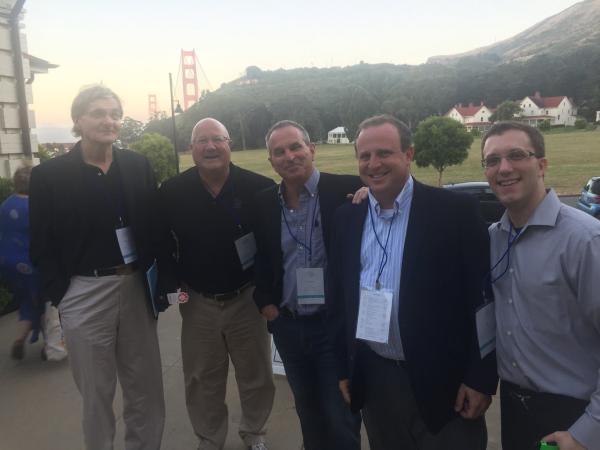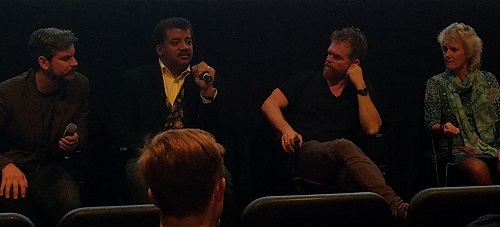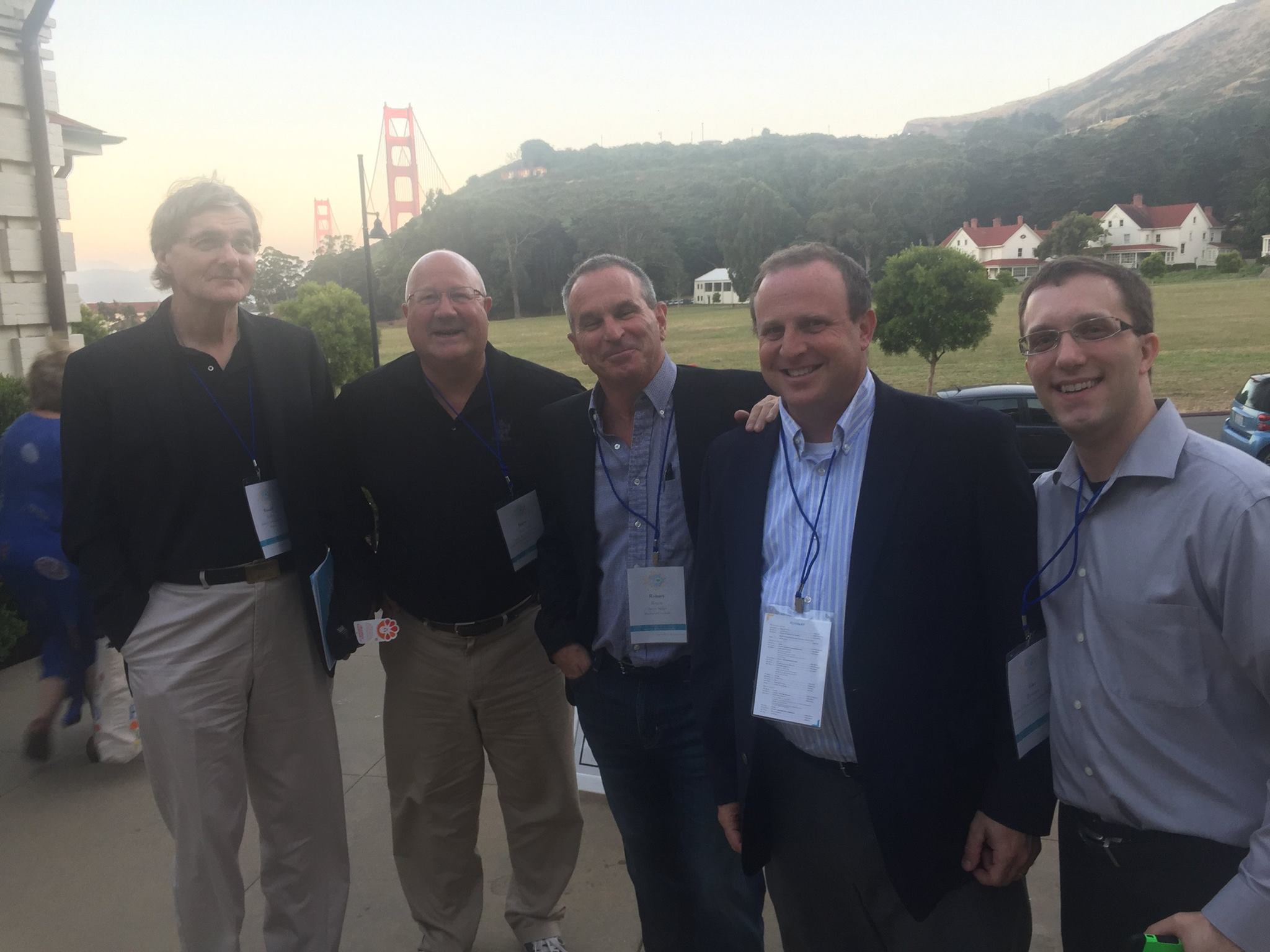
1. Friday was the premiere of "Food Evolution", a documentary about the many beneficial advances in agricultural science we have had, in New York City and Los Angeles. I had seen it before, two weeks ago, at the University of Guelph when they flew me in to give a talk. Guelph is an agriculture town, everyone knows a scientist or a farmer, they see the benefits of science and farming, and I wanted to see how that compared to New York City, where anti-science beliefs about food are the norm.
The reactions in the two towns were quite different, but not as you would expect.
At least I didn't. And on Science 2.0 I wrote about it in "Food Evolution: A Tale Of Two Cities".

L to R: "Food Evolution" Producer Trace Sheehan, narrator and script consultant Dr. Neil Tyson, Academy Award-Nominated Director Scott H. Kennedy, Dr. Alison Van Eenennaam.
2. The Breakthrough Institute, a group of environmentalists who are actually pro-science and advocate for evidence-based approaches to progress that will also preserve our environment, flew Dr. Alex Berezow in for a talk about 10 Problems in Science Communication, things like political bias and false equivalence and framing and just plain getting it wrong.
Below, he is with (L to R) Ron Bailey of Reason, Steve Hayward of AEI, Robert Bryce of Manhattan Institute, and Jeremy Carl of Hoover Institution in one of the most anti-science counties on the planet, Marin in California. This is one of the places that forced California to have compulsory vaccines, because some of their schools only had 26% of children vaccinated due to belief it causes autism. Basically, the science literacy of the place doubled when these people drove across the Golden Gate Bridge to visit.

3. I sat in on the Council for Agricultural Science and Technology (CAST) meeting on bee health in Washington, DC. Bees are actually doing fine in gross numbers and overwinter losses this past winter were the lowest since they have taken the survey.
But it's still a survey. And beekeeping has become a fad, which means more amateurs who don't know what they are doing killing them with incompetence. And transporting bees all over the place as rentals has to cause some shock. All of those things make me distrust estimates about how much peril bees are in. Yes, a decade ago there was a large die-off and bees abandoned hives, but that has also occurred for as long as anyone has kept logs about bees.
 To answer those complex questions, Professor Marla Spivak of the University of Minnesota, St. Paul, explained how parasites (and chemicals to get rid of those) is a big concern, not trace levels of targeted pesticides like neonicotinoids or global warming. Land use is a big issue as well.
To answer those complex questions, Professor Marla Spivak of the University of Minnesota, St. Paul, explained how parasites (and chemicals to get rid of those) is a big concern, not trace levels of targeted pesticides like neonicotinoids or global warming. Land use is a big issue as well.
Despite environmentalists raising money on the issue, bees are not in danger - not honeybees, not wild bees - but they are important, so we have to make sure science is always on top of any new issues.
Like us, CAST will be right out in front. You can read their report here.
4. Yet another scaremongering study has been released, this one declaring that lead is in baby food. Of course lead is in baby food, with modern detection methods almost anything can be detected in anything. Should you be worried?
To find out if it is a health threat or a health scare, SELF magazine asked our Dr. Ruth Kava.
5. You may not get taxed to death, but you sure won't get taxed to health. In The Federalist, Michael T. Hamilton, The Heartland Institute’s research fellow for health care policy, author of the weekly Consumer Power Report, and managing editor of Health Care News, laid out the problem with assuming that taxes are really how behavior is changed. He is talking about picking and choosing winners in the drinkables market by legislative fiat (juice exempt, smoothies exempt, sodas taxes, etc.) and cited our discussion of the issue in Berkeley, California, where calories actually went up after their soda tax. And in soda specifically people simply bought outside the city where it was cheaper. Because even a few cents matters when you are poor, and these efforts assume poor people are too stupid to have freedom on what to buy, and insist regressive taxes on them is the only solution.
6. Finally, back to "Food Evolution", it must be time for the sock puppets funded by Big Organic to get more checks because a US Right To Know blogger is throwing her press release everywhere she can to lament that Dr. Neil deGrasse Tyson narrated it. They consider him a reliable progressive and so want to plead to his political instincts, but among prominent science media personalities, he is arguably among the more moderate. He has defended Republicans when it comes to science funding, noting rightly that they fund science far more than Democrats, that he narrated this movie knowing it will enrage the anti-vaccine/anti-GMO/anti-energy groups that dominate the left. That's balanced, and we need more of it.
They are really in a panic, even highlighting us in their conspiracy fable that Monsanto is secretly controlling the world of science. Who is US Right To Know's sole source for claims our scientists and doctors have ever manufactured data for a donor? US Right To Know, of course.
Below you can see a video clip I took of Dr. Tyson during the panel discussion after the premiere, discussing the anti-science beliefs of the left that don't get a lot of traction - denial of science in food, energy and medicine. The first part is missing, I was taking notes rather than recording, but even in this small snippet he shows why the progressive activists who hope to bully him are not going to have much luck.



